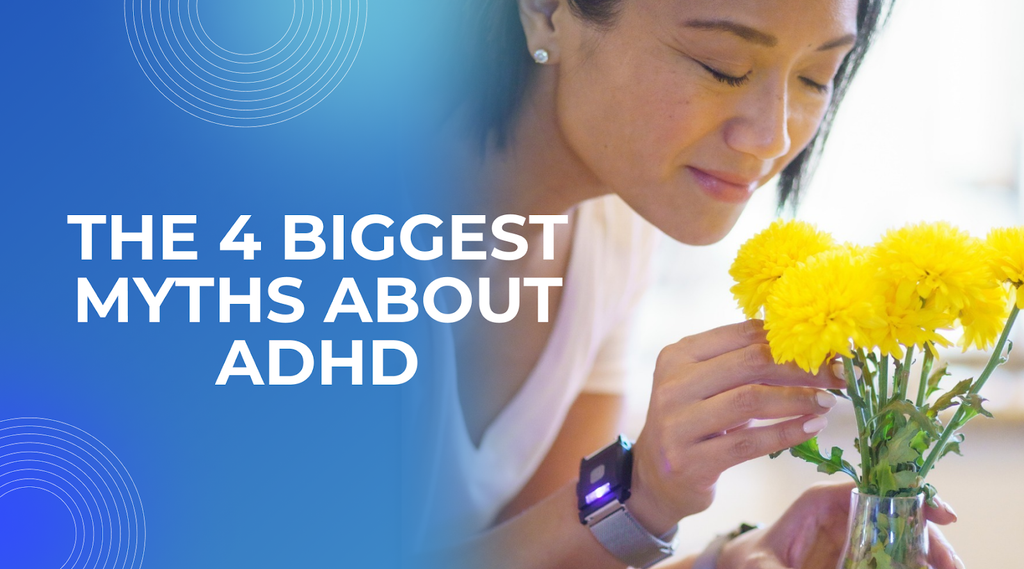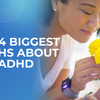The 4 Biggest Myths About ADHD – Busted!

It’s October, which means it’s ADHD Awareness Month. As part of our mission to spread scientific information about this disability and the latest research, we’re here to dispel some of the biggest misconceptions about it.
We hope you enjoy the read, that you learn something new about ADHD, and that you share this with your friends and family to help raise awareness!
Myth #1 – It’s Not A Disability
Those with ADHD are different from those without it on a symptomatic and genetic level – it’s not just a state of mind. Research shows that it can be inherited through family and even changes the development of the brain. Not to mention the fact it causes difficulties in the social, emotional, academic, and work areas of life. These are more than enough reasons to class it as a real disability, which it is!
Myth #2 – ADHD Is The Parents’ Fault
The main causes of ADHD are inheritance (through family genes) and neurological factors (like pregnancy, infections, brain damage), not parenting! Bad parenting can make ADHD worse in pre-existing cases, but it cannot create it.
Myth #3 – We’re Over-Medicating Kids
A 2015 study showed that the current level of medication for kids with ADHD is either appropriate or slightly under what is needed. And in 2013, a study concluded that only 20.4% of adolescents with ADHD were receiving stimulants out of a group of over 10,000.
Myth #4 – Females Have Fewer Cases And Less Severe ADHD
It’s only in the last few decades that ADHD in both female children and adults has been recognized! Though they are prone to all of the same conditions and impairments as males – including academic and social impairments, driving problems, substance abuse, and more. Let’s dispel this false fact to ensure all people with symptoms are properly diagnosed and cared for.
TouchPoints – An Effective ADHD Management Tool
The symptoms of ADHD can be improved with treatment, a healthy diet, plenty of sleep, and exercise. Studies show that our patented wearables help this process, by lowering hyperactivity, improving attention, and controlling impulsivity. Click the button below to learn more and try them today.




